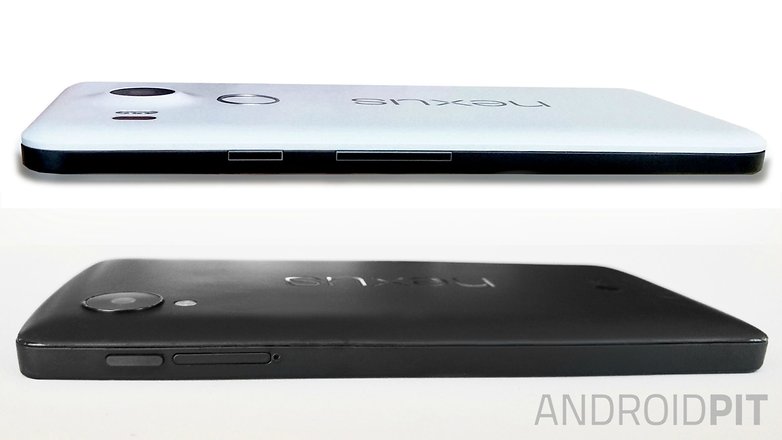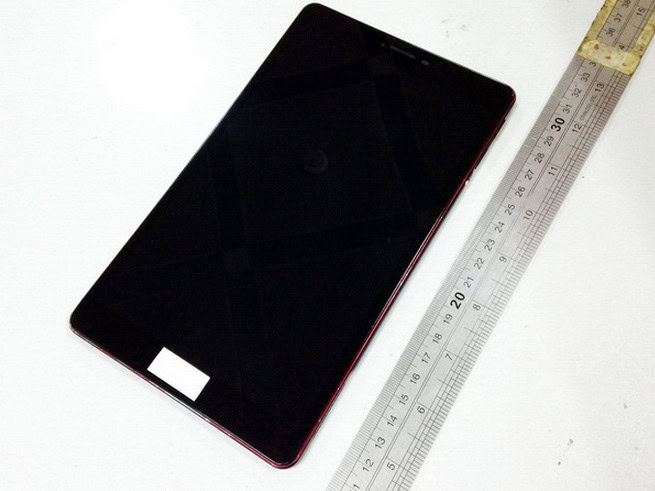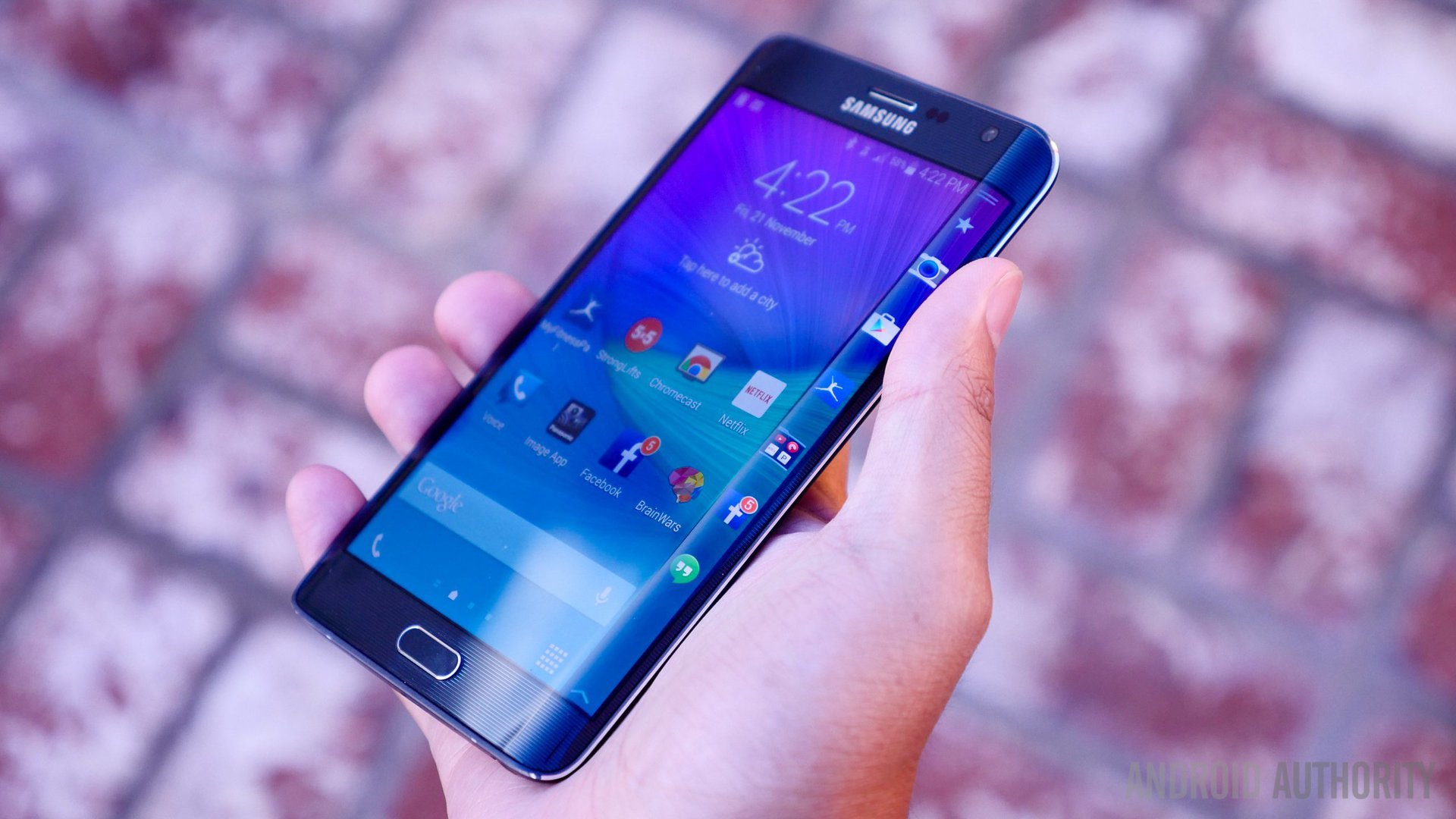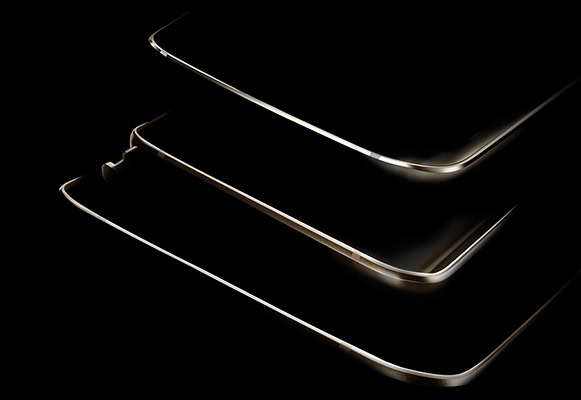Affiliate links on Android Authority may earn us a commission. Learn more.
Our ‘leak’ culture has made it nearly impossible to be surprised by new devices

Disclaimer: This piece pertains to leaks as they apply to product launches regarding the IT industry. The opinion contained herein should not be taken as having any relevance to whistle-blowers or leaks of other natures, nor should it be viewed as proof or confirmation that any company named is deliberately leaking information.
Color me curious
I’ve got a riddle: Think of a flagship, any flagship. Next, think when you first heard, saw, or read about it. Finally, think back to when it actually launched. Chances are, the second and third answers aren’t the same. In fact, I would bet they aren’t even close, not by a long shot.
Once, a long long time ago, product launches had actual relevancy. Rather than a blogging ground for the tech press to socialize and get their geek on, they were by-and-large the first appearance of the very merchandise that corporations sponsoring them were hitching their wagon to. They represented the future of the industry, and most (though certainly not all) of the world was given its first inkling of something new.

These days, it’s hard to actually get excited about anything, especially new devices or even form factors. While some of this might be the sheer array of product choices available, it’s also – and perhaps more so – the result of information overload. Specifically, those who follow tech are so inundated with knowledge, performance benchmarks, and design details prior to anything official.
Leaks have become so commonplace that companies need not have launch events to begin with. What’s the point? It’s almost comical the extent to which giant OEMs like Apple and Samsung splurge on a gigantic media extravaganza just to officiate that which has technically been known for months. With the case of the recently announced iPad Pro, rumors and even leaked photos had been floating around for years. It’s like when the big day finally comes, all those in-the-know are like, “can you show us something we haven’t seen?”
Confusion in comfort
On a personal level, I am conflicted as to the implications and nature of leaks as they exist today. Once upon a time, I found the very idea of all-encompassing secret sharing to be disrespectful to the very companies producing the products. They work, research, develop, refine, test, and spend untold amounts of resources to make the “simple” thing we consumers then take for granted. As such, these companies obviously try to conceal their big secrets to prevent their competitors from getting in on the action.
It’s easy to see the potential damage that can be done: Samsung had launched its very first Galaxy Tab in all kinds of sizes and and shapes well before Apple ever had an iPad Mini (and now iPad Pro), and so too did the company have over half-a-dozen tech-timepieces before Apple took the veil off its Watch. Heck, even Huawei was eager to get in on the 1-up push up and released its new Mate S complete with Force Touch, well before the announcement of the iPhone 6S. While one can argue forever as to where these ideas came from, the fact that leaks suggested Cupertino was developing (1) a tablet (2) a watch, and (3) 3D Touch on the 6S definitely factor into decision making. And why shouldn’t it: business is all about slaying the competition and the best way to do that is by outsmarting it.
Don't be mistaken: this isn't some thinly-veiled ode to Apple. Quite the opposite, even: you snooze you lose.
Don’t be mistaken: this isn’t some thinly-veiled ode to Apple. Quite the opposite, even: you snooze you lose. In this sense, leaks serve to not only keep the competition on its toes, but to perpetually inspire innovation while any given company may be seen stagnant.
These days I think the whole “shock and awe” campaign of product releases has subsided to the point where the moral implication of leaks really don’t seem as bad as they once did. Instead of the horrible blurrycam images taken from yesteryear, 2015 has seen full blown product renders in cases for the HTC One M9, Galaxy S6 Edge, LG G4 and numerous other products. Benchmarks are known, hardware variants are listed, even pricing and availability. It’s so commonplace now that I don’t even think twice.
The Litmus Test

It seems like these days, a device can’t release unless it’s been leaked to death for days, weeks, or even months beforehand. No matter how big or small, the (no longer blurry) cam will get it all. Ironically, this is also the perfect litmus test to weed out the tabloid “truth” from pending products. Case in point: several leaks ago, sorry, several weeks ago, alleged shots of a Nexus 8 tablet hit the tech world. Despite several websites covering it, we refused to for the simple fact that there was absolutely no credibility to the story whatsoever. Not a single solid spec or anything had been produced for such a product, and therefore, by default, the images were immediately flagged as a forgery.
Leaks go far, far up the totem pole. Even if we’re not talking actual press renders or hands-on with “non-existent” products, those responsible for the most basic elements of product manufacturing are often involved. There might be hardware vendors who are commenting about large orders for an upcoming product, mysterious benchmark tests, schematics for the size and shape of cases, etc. Indeed sometimes the details are so darn detailed that some smaller OEMs can release clone products before the real ones are even made public, let alone sold in stores.
Perfect PR
Around the time of the infamous bar incident, the allegation of marketing stunts began to get louder. Rather than try and hide a product, to keep it away from the public’s knowledge, a more social idea was stressed: companies deliberately planting or allowing information to leak in order to gain maximum exposure. 2015 has seen the increased trend of brand name accessory manufacturers leaking designs. Whereas in the past, cases and such were always random, anonymous Chinese factory products, these days everyone from Verus to Spigen seem to be springing a leak.

In truth it’s a perfectly logical business move: by leaking devices in advance of their launch, companies are able to ensure they get tons of free publicity. Likewise, in the case of cases, the accessory manufacturer has the potential to get a gigantic boost in sales due to their name being plastered on the first “official” press images of the product.
Just looking at the lead-up to this year’s Galaxy Note 5 for example, a single post managed to net over 270,000 hits according to our internal tally and basically within the span of a few days. That’s over a quarter of a million views for a *leak*. What more could Samsung hope for when it arguably didn’t even lift a financial finger?
Now mind you, this is not to claim all (or perhaps any) companies are planting or allowing leaks to flow. We can hypothesize and theorize all the while but will never be privy to the inner workings and decisions made at corporate planning meetings. Heck, who knows the full extent of what is – or isn’t – going on. Still, when one considers just how well hidden the Galaxy Note Edge was last year and compare it to the Galaxy Alpha, clearly there is a way to control secrets when one wants to.
A timing solution

Another possible benefit of the “leak culture” is that companies no longer need to schedule launch events months and months before the actual product hits stores. I remember, for example, when Windows 8 was prepping for launch, and Microsoft subsequently announced the Surface RT and Surface Pro on June 18, 2012. Neither would release for ages, and even then while the RT variant shipped later that year with the official launch of Windows on October 26th, those waiting for the Pro didn’t get it until February 9, 2013. Arguably the same could be said about the Apple Watch: it was unveiled on September 9, 2014 yet didn’t ship until April 24, 2015.
If a product isn’t literally in stores to test out and get a feel for – regardless of release date – then it’s easy for one to forget it exists. If that happens, suddenly budgeting and/or plans for the future are also up in the air. Consider for example, the Surface situation: if someone needed a new PC when Windows 8 launched, and didn’t want the hobbled Surface RT, they either had to wait another 4 months or else just get something then and there. Time is money, and people are more likely to use the latter when there isn’t much left of the former.
Time is money, and people are more likely to use the latter when there isn't much left of the former.
Leaks, “official” or otherwise, arguably solve this problem. Consider that the Galaxy S6 Edge+ was outed months upon months before Samsung announced it. People were thus entertained with the possibility of a plus-sized product, then strung along as more information came forth over time, and by the start of the summer basically sold on fact that it was undeniably real. Samsung meanwhile, “did” nothing for a product that “didn’t exist” yet got roughly 3 months of free PR for it. When the contents of Unpacked was out on the table, the company was in the fortunate position of releasing the device just a week or two later: no need at all for months of marketing build-up.
The future is now (but you can’t buy it until tomorrow)

As the modern era continues to advance, there will come a time when product leaks have become a basic cornerstone of journalism. In many ways, we have already reached this point. Whereas I was born in a time before the internet age and the relentless offering of content and creativity it fosters, kids these days will never know what it was like to have a real “secret”.
While we may never know just how leaks come about or the extent to which any given company benefits from them, one thing is quite apparent: their presence makes it that much harder to wait for the actual products they promise. It is this lust for more that paradoxically encourages further leaks, and yet in the process, only further traps us into the vicious cycle of information excess.
Now, if you excuse me, I need to scan the interwebs for my it’s-gotta-be-announced-eventually Galaxy Tab Edge…